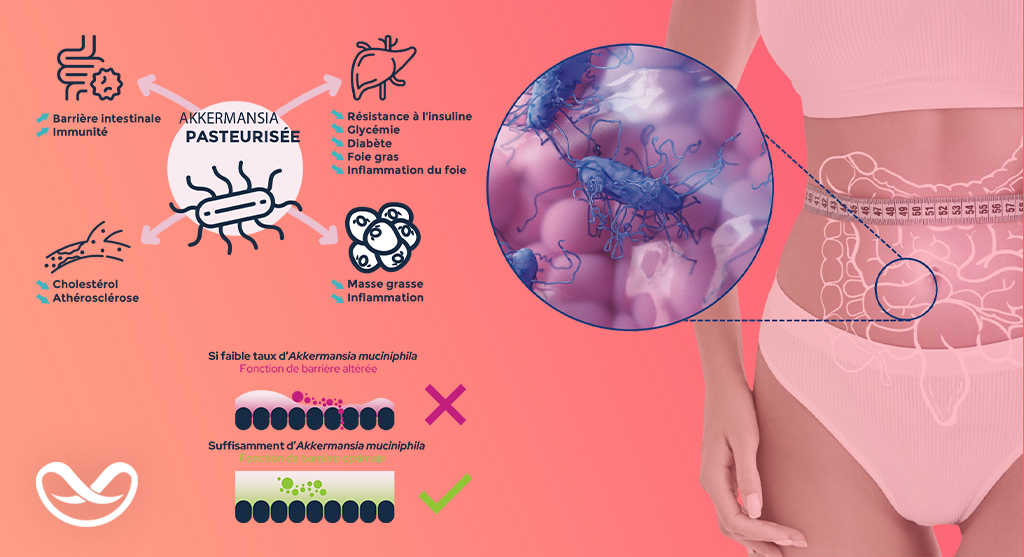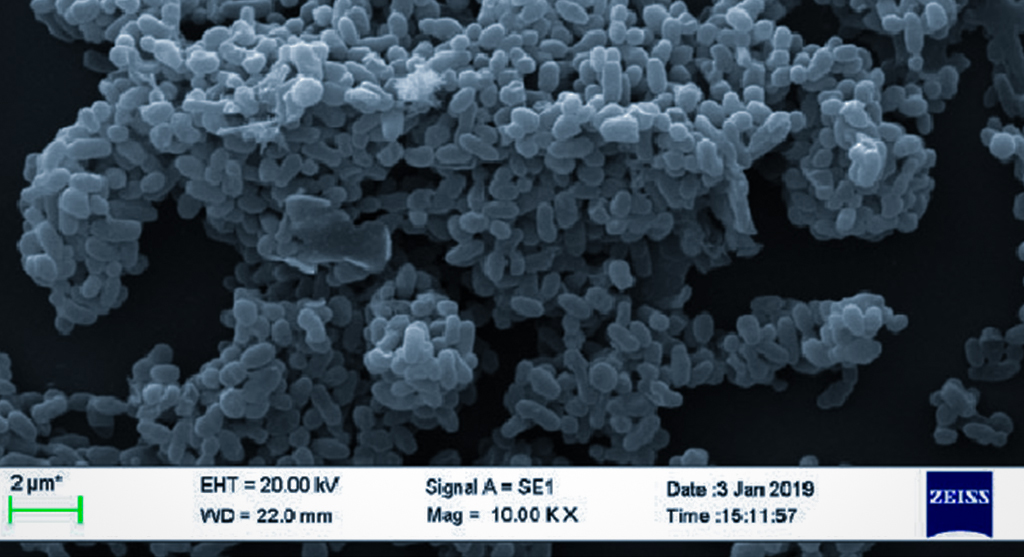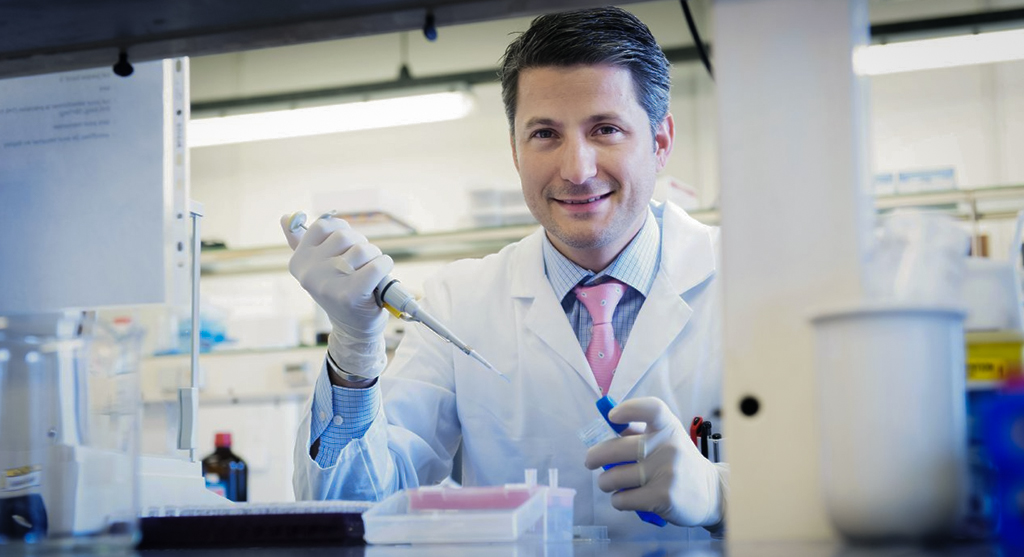Akkermansia muciniphila is an extraordinary gut bacterium that has drawn significant attention from the scientific community due to its beneficial effects on human health. Naturally found in the gut microbiota, this bacterium plays a pivotal role in metabolic regulation, digestive health, and the prevention of chronic diseases. Discovered in 2004, Akkermansia muciniphila belongs to the Verrucomicrobia phylum and is unique in its ability to degrade intestinal mucus, which it uses as an energy source. This distinctive trait makes it a key player in regenerating the intestinal barrier, essential for preventing “leaky gut.” By stimulating mucus production, Akkermansia strengthens intestinal protection against pathogens while promoting a harmonious interaction between the immune system and the microbiota.
According to Professor Willem de Vos, a microbiology specialist at Wageningen University:
“Akkermansia is one of the most promising bacteria in microbiome research due to its unique role in maintaining intestinal balance.”

Role in Metabolic Health and Weight Management
Researchers have also highlighted its crucial role in metabolic health. Akkermansia muciniphila appears to improve insulin sensitivity and support better weight management, making it a valuable asset in combating obesity and type 2 diabetes. Numerous studies have shown a correlation between high levels of this bacterium in the gut microbiota and reduced blood glucose levels, underscoring its potential to lower the risks of metabolic diseases. Professor Patrice Cani, an expert in metabolism and microbiota, states, “The discoveries about Akkermansia pave the way for groundbreaking treatments for metabolic disorders. This bacterium acts as a true guardian of metabolic health.” Additionally, its influence extends beyond metabolism. Akkermansia also plays a role in reducing chronic inflammation. By modulating the immune system, it minimizes excessive inflammatory responses linked to conditions such as colitis or inflammatory bowel diseases (IBD). Recent studies also suggest a positive impact on cardiovascular health, with effective regulation of blood lipids that could reduce the risks of heart diseases.
Dr. Zhao Su, a functional nutrition researcher, notes:
“Akkermansia’s ability to lower inflammation makes it a powerful ally not only for metabolism but also for the prevention of chronic diseases.”

Factors Influencing Akkermansia muciniphila Levels
The presence of Akkermansia muciniphila in the gut microbiota can be influenced by various factors, including diet. Foods rich in prebiotic fibers, such as asparagus, leeks, and bananas, promote its growth. Conversely, a diet high in saturated fats and refined sugars can compromise its abundance. Physical activity also plays a significant role in stimulating overall microbiota diversity and balance. However, certain medications, such as antibiotics, may disrupt the levels of this beneficial bacterium. Today, dietary supplements containing pasteurized forms of Akkermansia are available, offering an intriguing option to complement a healthy lifestyle and prevent metabolic or intestinal disorders.
“Using supplements based on pasteurized Akkermansia represents a significant advancement in microbiota-based therapies,” explains Professor Hélène Plovier, a clinical nutrition specialist.
These supplements also open doors to personalized treatments for diseases such as obesity or diabetes, expanding the range of therapeutic solutions based on the microbiota.
Future Prospects and Health Impacts
Akkermansia muciniphila represents a promising advancement in gut and metabolic health. Its ability to support the intestinal barrier, reduce inflammation, and enhance metabolic functions makes it an essential ally in preventing and treating numerous chronic diseases. While research is still ongoing to fully understand its potential, it is already evident that adopting a healthy lifestyle rich in fibers and low in processed foods can naturally encourage its growth. In the near future, Akkermansia could play a central role in innovative medical approaches, improving the quality of life for millions.
As Professor Anaïs Everard, a systems biology expert, asserts: “Akkermansia is a crucial piece of the puzzle for understanding how to optimize health through the microbiota.”

References
Derrien, M., Vaughan, E. E., Plugge, C. M., & de Vos, W. M. (2004). Akkermansia muciniphila gen. nov., sp. nov., a human intestinal mucin-degrading bacterium. International Journal of Systematic and Evolutionary Microbiology, 54(5), 1469-1476.
Everard, A., Belzer, C., Geurts, L., Ouwerkerk, J. P., Druart, C., Bindels, L. B., … & Cani, P. D. (2013). Cross-talk between Akkermansia muciniphila and intestinal epithelium controls diet-induced obesity. Proceedings of the National Academy of Sciences, 110(22), 9066-9071.
Plovier, H., Everard, A., Druart, C., Depommier, C., Van Hul, M., Geurts, L., … & Cani, P. D. (2017). A purified membrane protein from Akkermansia muciniphila or the pasteurized bacterium improves metabolism in obese and diabetic mice. Nature Medicine, 23(1), 107-113.
Zhao, S., Liu, W., Wang, J., Shi, J., Sun, Y., Wang, W., … & Wang, F. (2019). Akkermansia muciniphila improves metabolic profiles by reducing inflammation in chow diet-fed mice. Journal of Functional Foods, 53, 70-77.

























Leave a Reply